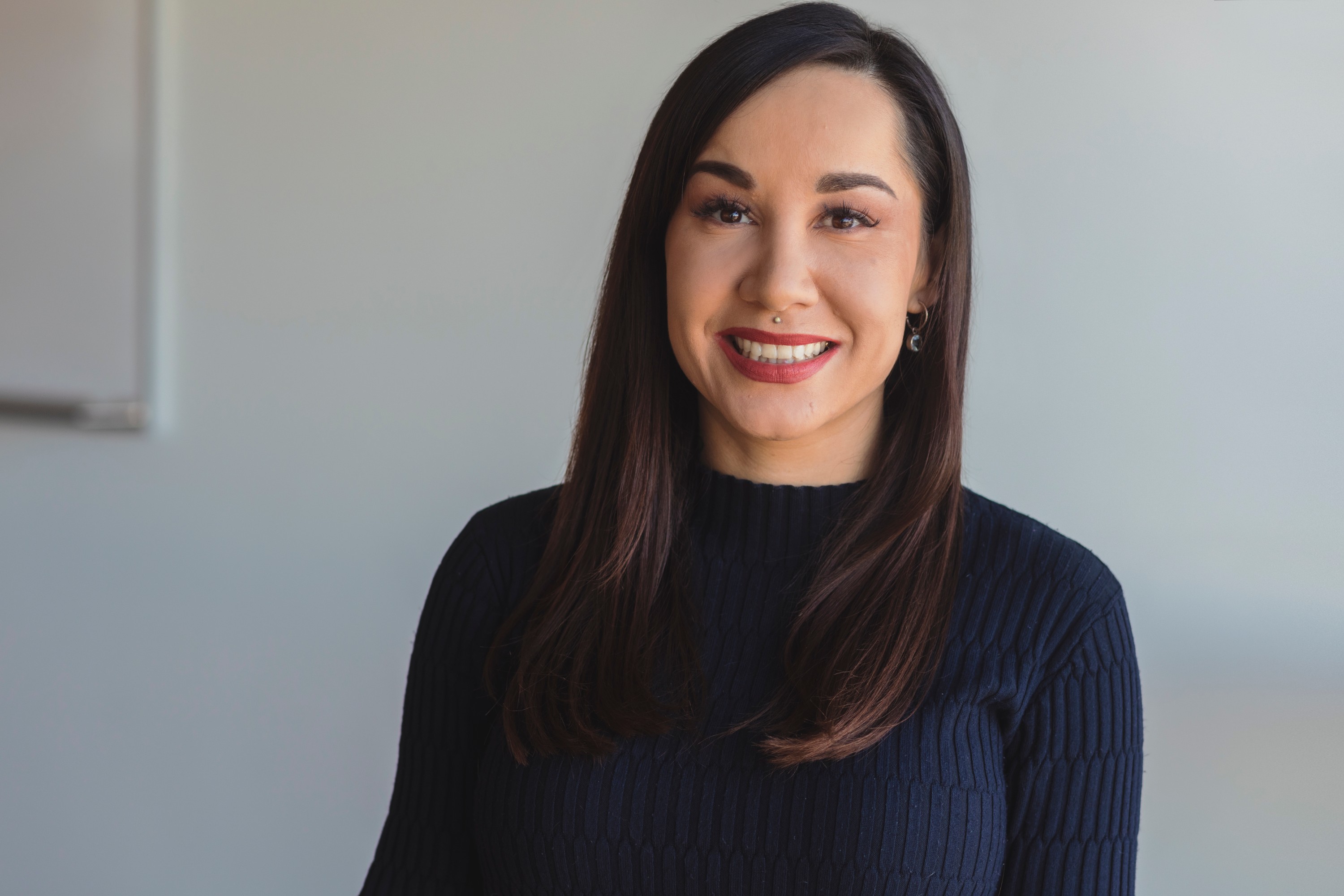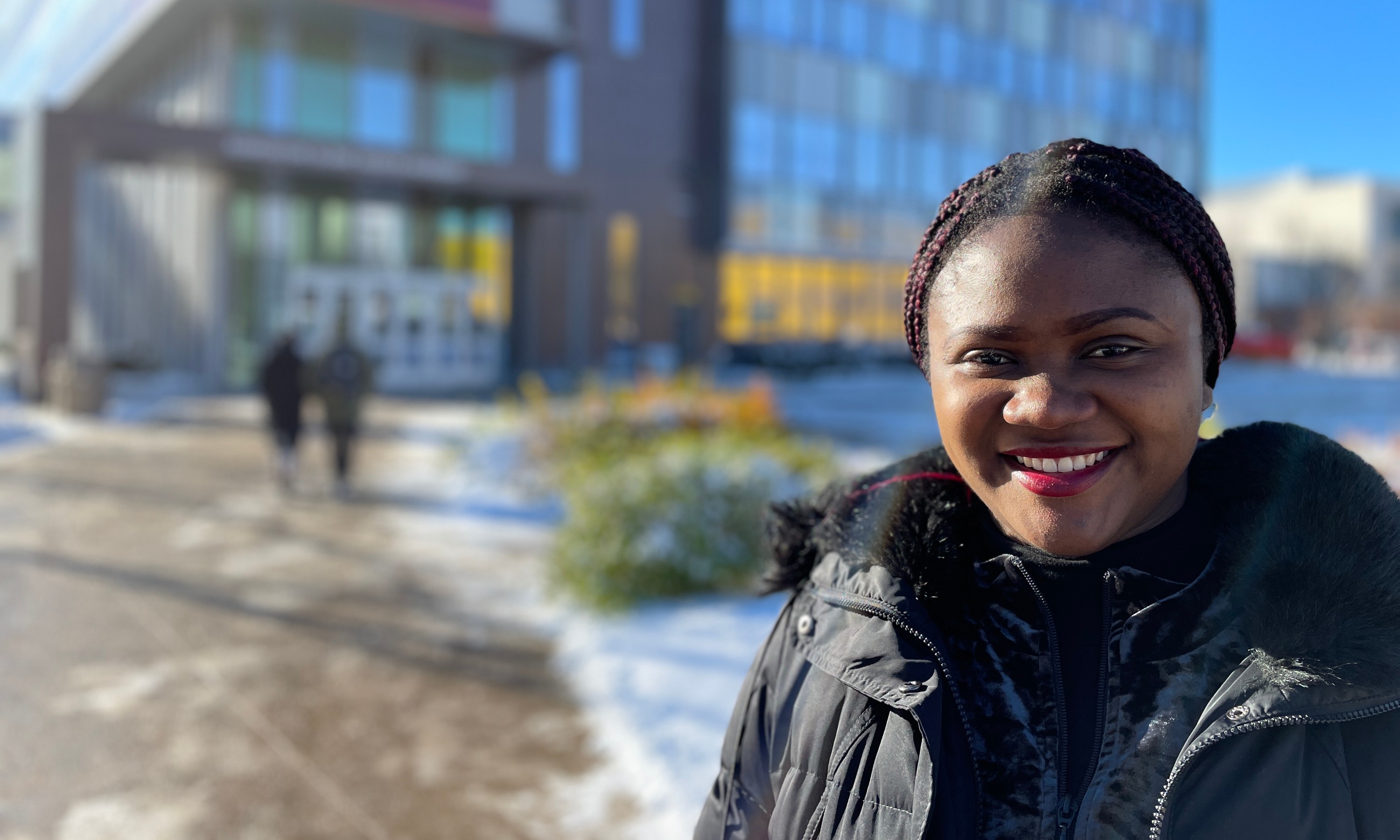For Jah-Amaka Enwedo and Jessie Conrad, the goal of doing research at the University of Alberta is to make life better for people in their home communities.
They are from very different disciplines and far-flung origins: Enwedo, from eastern Nigeria, studies ways to improve education for the deaf. Conrad, from the Yellowknives Dene First Nation, seeks to improve health care in Canada’s North.
Now their shared focus on community-engaged research — and a unique new student award — have brought them together to build their skills and expand knowledge of their communities’ needs.
Enwedo and Conrad are two of 10 recipients of the Community-University Partnership Graduate Student Equity Award, offered for the first time this academic year with the support of the Suncor Energy Foundation.
Each student receives $7,000 toward their studies as well as mentorship from community leaders and a chance to create their own “community of practice” — defined as “an educational method that brings together a group of people who share a passion for something they do, and as they interact in the group they learn how to do it better.”
“This award helps with the financial struggle, of course, but I also feel a sense of belonging to a new community with the other recipients,” says Enwedo, a PhD student in the Faculty of Education. “The values and principles behind the award have made me think deeply about my research.”
“It’s a way to allow typically marginalized perspectives to be integrated into the University of Alberta research community,” says Conrad, who is doing her master’s degree in the School of Public Health. “I highly commend Suncor for its level of commitment to corporate social responsibility.”
New researchers, new research questions
In an era when academia is responding to calls from diverse quarters for “nothing about us, without us,” community-engaged research seeks new ways to gather feedback and direction for inquiry.
Before coming to the U of A, Conrad was already involved with community-based research, having helped with both the Giant Mine Remediation Project in Yellowknife and a health research project on climate change, adaptation and mitigation for the Institute for Circumpolar Health Research.
“I have a vested interest in community-based health research, especially when it comes to environmental impacts of extractive industries,” she says. “I think drawing on the strengths of Indigenous stakeholders is paramount in generating ethical, relevant and empowering research.”

Conrad hasn’t quite decided on the focus for her master’s thesis at the U of A. She would like to help land-based healing programs develop culturally appropriate evaluation methods that allow them to effectively report back to funders, clients and their families. She also has an interest in exploring barriers and solutions to improving palliative care for Indigenous elders from the Northwest Territories and Nunavut.
Enwedo worked in Nigeria for 10 years as a sign language interpreter and did her master’s degree in special education. Though she is not deaf, she identified a need for improved education for deaf students who do not do as well as their hearing counterparts on standardized tests. She wants to work with deaf students and their families to encourage bilingualism as a way to improve overall literacy, with sign language as the main language for deaf individuals. She has identified poverty as a major barrier for deaf students in Nigeria, in addition to a lack of diagnosis of other issues such as dyslexia and developmental disabilities. She also sees a need for more visual teaching resources and better interpreters.
“I intend to do this research from the grassroots, engaging the parents and families as well as the deaf community, because some interventions can start at home and language development starts from as early as at birth,” Enwedo says. “Deaf people have the ability to do well, but they need support.”
A strong foundation for future leaders
Enwedo will use some of her award money to pay for advanced sign language training. Conrad will use the award money to pay for extra courses in program evaluation and negotiation, skills she sees as critical to community-based research.
But the most important part of the award for both is the support of the other recipients.
“They come from all over the country and all over the globe, yet meeting them for the first time, I felt comforted that we are all on this learning journey together,” says Conrad. “I feel the influence of my peers will enable me to refine my research and ensure that it’s of high quality.”
Most student awards are given out based on merit, but the application process for this one was different. Graduate students from any discipline were invited to apply, so long as they were engaged in community-based research and identified themselves as coming from an equity-deserving background.
“That could be people of colour, LGBTQ2S+, Indigenous women, racialized people, people with mental and physical disabilities, newcomers, refugees and more — all groups who face unequal access to opportunities, resources, funding and support, or who experienced systemic discrimination and oppression,” explains Karen Edwards, director of the Community-University Partnership for the Study of Children, Youth, and Families, which created the award.
Ten recipients were drawn from 120 applications that met the criteria. The participants will share their learning with CUP’s steering committee in May.
“We want to ensure that we’re providing the students with opportunities to build a really strong foundation as they become the next generation of leaders in community organizations, school boards, academia or government,” says Edwards.
